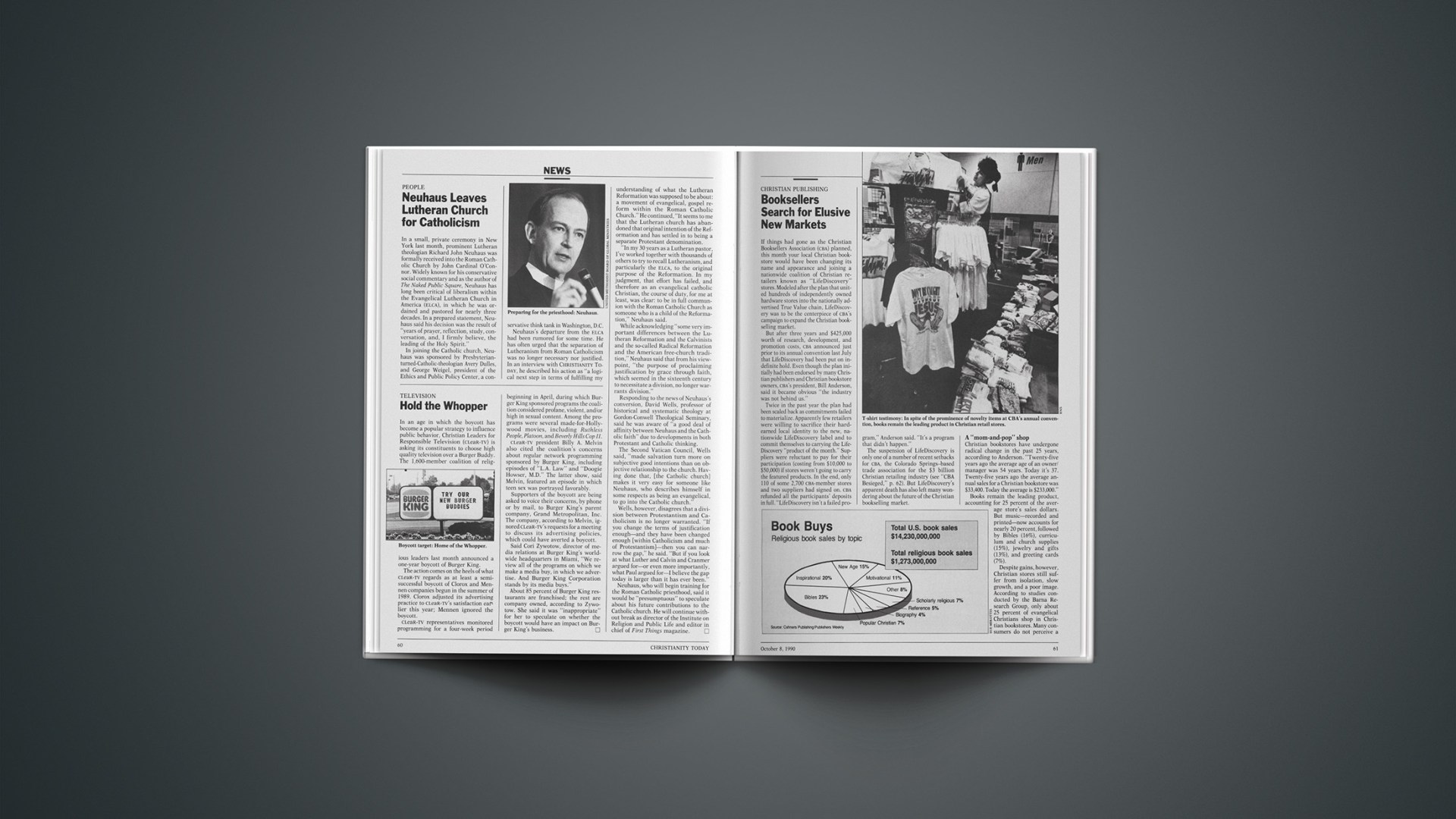In an age in which the boycott has become a popular strategy to influence public behavior, Christian Leaders for Responsible Television (CLeaR-TV) is asking its constituents to choose high quality television over a Burger Buddy. The 1,600-member coalition of religious leaders last month announced a one-year boycott of Burger King.
The action comes on the heels of what CLeaR-TV regards as at least a semi-successful boycott of Clorox and Mennen companies begun in the summer of 1989. Clorox adjusted its advertising practice to CLeaR-TV’s satisfaction earlier this year; Mennen ignored the boycott.
CLeaR-TV representatives monitored programming for a four-week period beginning in April, during which Burger King sponsored programs the coalition considered profane, violent, and/or high in sexual content. Among the programs were several made-for-Holly-wood movies, including Ruthless People, Platoon, and Beverly Hills Cop II.
CLeaR-TV president Billy A. Melvin also cited the coalition’s concerns about regular network programming sponsored by Burger King, including episodes of “L.A. Law” and “Doogie Howser, M.D.” The latter show, said Melvin, featured an episode in which teen sex was portrayed favorably.
Supporters of the boycott are being asked to voice their concerns, by phone or by mail, to Burger King’s parent company, Grand Metropolitan, Inc. The company, according to Melvin, ignored CLeaR-TV’s requests for a meeting to discuss its advertising policies, which could have averted a boycott.
Said Cori Zywotow, director of media relations at Burger King’s worldwide headquarters in Miami, “We review all of the programs on which we make a media buy, in which we advertise. And Burger King Corporation stands by its media buys.”
About 85 percent of Burger King restaurants are franchised; the rest are company owned, according to Zywotow. She said it was “inappropriate” for her to speculate on whether the boycott would have an impact on Burger King’s business.










